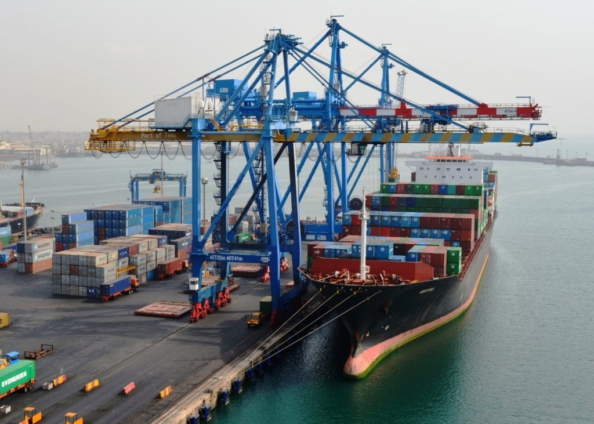Save for three different years, Ghana’s economy has grown by at least four percent annually since 2000, pulling along with it a very vibrant informal sector (World Bank, 2020). This reflects in the retail trade landscape where about ninety-six percent of all retail activity has been in the informal sector (Deloitte, 2016). These retail centres are characterised by small shops in wooden enclosures or a few built up shops located in commercial enclaves or along major streets and roads across the country (Anku & Ahorbo, 2017).
Formal retail trade has almost been an exclusive preserve of foreign ownership, starting from companies tracing their roots to colonial era trade entities like the United Africa Company (UAC), A.G. Leventis and others, who dealt mostly with imported goods meant for retail. The government of Ghana purchased A.G. Leventis in 1962 to pave way for the country’s first foray into formal retailing by creating the Ghana National Trade Corporation (GNTC) (Murillo, 2014). There was however competition from several Lebanese and Indian businesses (Murillo, 2011) for the major chunk of formal retail.
Most of the informal retail trading involved a mix of local goods or purchase of imported goods from wholesalers who were mostly Lebanese or Indian, with a few indigenous players in the mix (Gann, Duignan, & Turner, 1975). This type of trading evolved around the nerve centres of Makola Market, built in central Accra to replace the Salaga Market in 1924, and the Kumasi Central Market, which even in the early 1980s had at least 20,000 traders plying their trade (Robertson, 1983).
These were the principal retail points from which there was a dissipation of intensity around informal trade along major urban routes down to neighbourhood shops and corner shops which were mostly owned by locals in a community, or depending on the type of goods, migrant members in the community, some of whom could even be foreigners from other West African countries, chief among them being Nigerians, Malians and Nigeriens.
In the 1960s retail activity was largely influenced by the Import Substitution Industrialization policies at the time through the sale and distribution of more locally manufactured products and hence the rise of local retailers. Most of the manufacturing was done by state corporations, accompanied by protectionist policies to reduce imported products. This empowered a network of many local retailers in the form of market women, which evolved into a more localised retail infrastructure for locally manufactured goods.
Latest Stories
-
Traction Control: A lifesaver with an off switch? Here’s why it exists
15 seconds -
I don’t need anyman to woo me with money – Miss Malaika 2024 winner refutes pimping claims
7 mins -
”Kurt Okraku sabotaged my national team career because I refused to sign with Dreams FC” – Najeeb Yakubu
8 mins -
Businesses urged to leverage Generative AI for enhanced customer engagement
12 mins -
MultiChoice Ghana partners with Ghana Hotels Association to elevate guest entertainment
20 mins -
Bawumia’s music streaming app or Mahama’s pay-per-view TV channel?
25 mins -
Karpowership Ghana empowers 40 Takoradi Technical University students with scholarship
27 mins -
We expect significant reduction in prices of petroleum products in coming weeks – CEO AOMC
40 mins -
Betway Africa offers once-in-a-lifetime ‘Play-on-the-Pitch’ experience at Emirates Stadium
49 mins -
I coined the term ‘hype man’ in Ghana – Merqury Quaye
55 mins -
Vasseur questions ‘strange momentum’ of Formula One race director change
1 hour -
“I am disappointed in Kojo Manuel” – Merqury Quaye on “no tie” comment
1 hour -
Nana Kwame Bediako; The beacon of unity
1 hour -
Western Region: NDC youth wing embarks on phase 2 of ‘retail campaign’
2 hours -
Action Chapel International holds annual Impact Convention in November
2 hours

